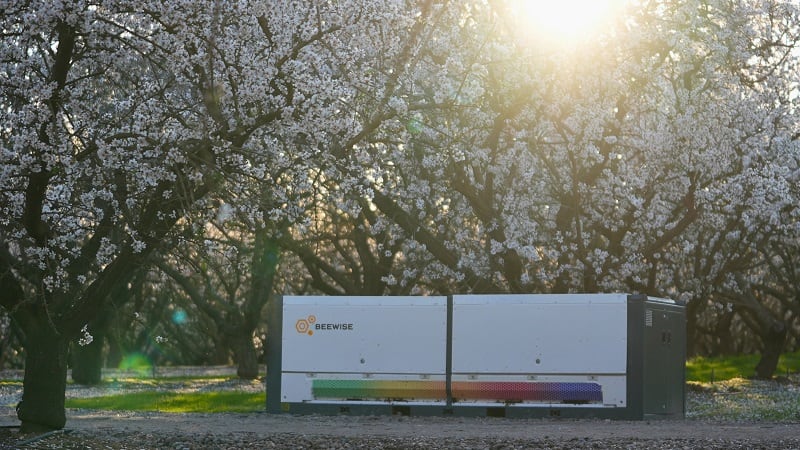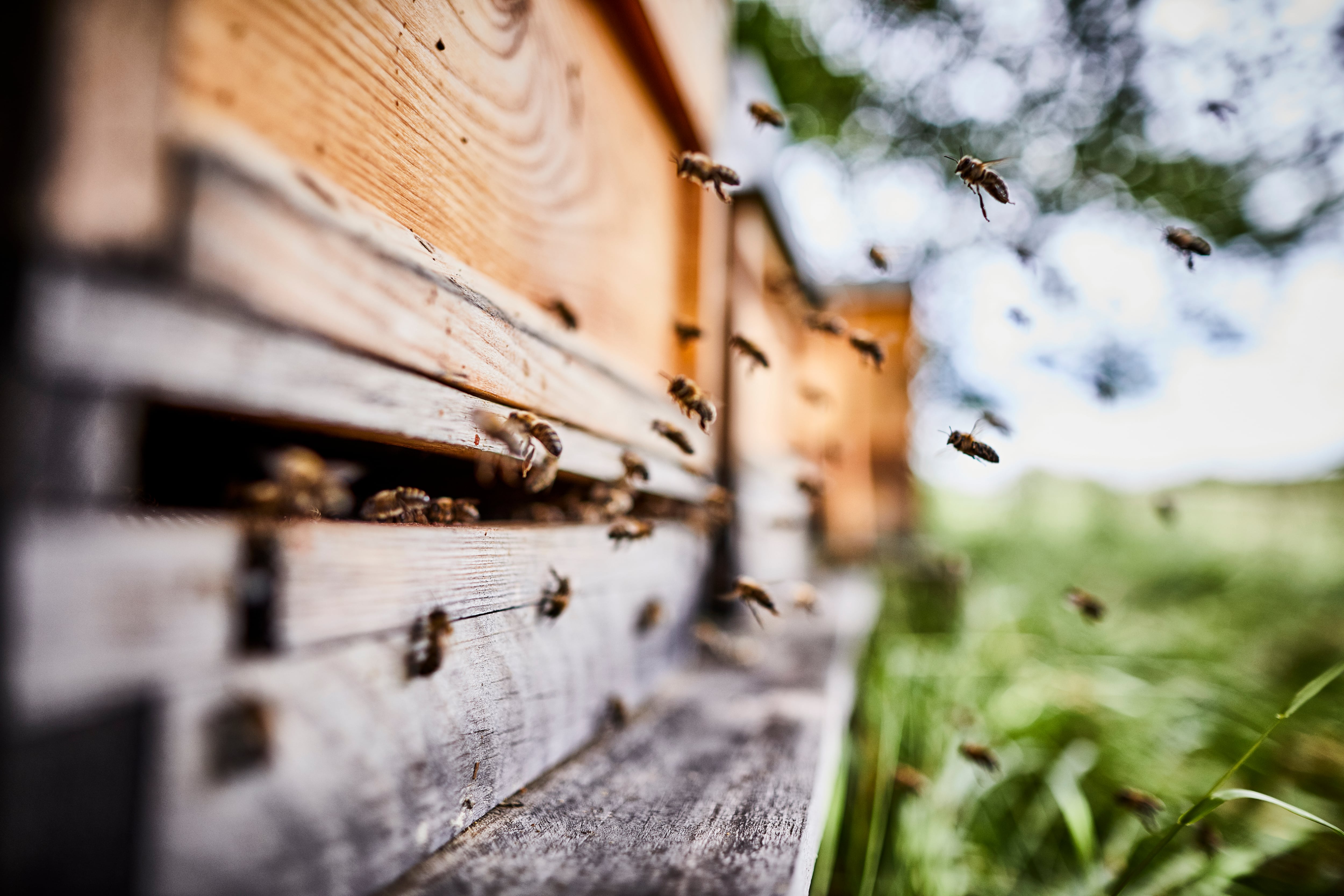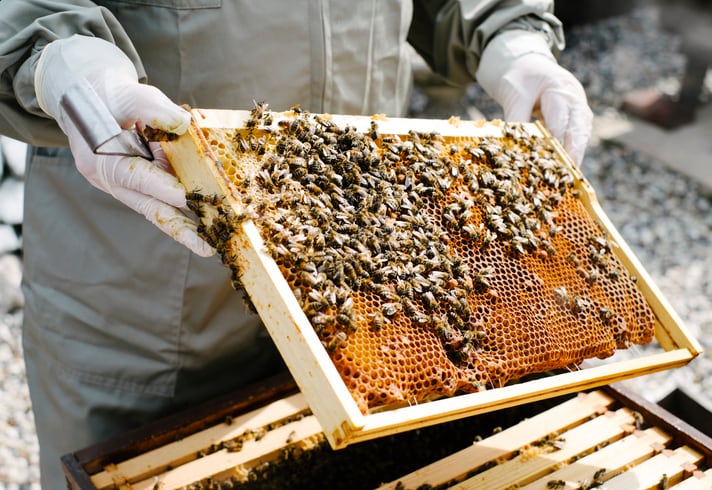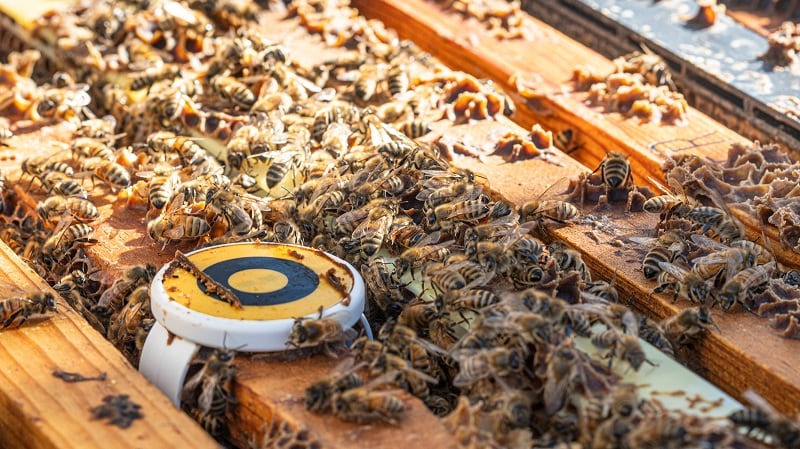California-based Beewise is replacing traditional wooden beehives with something sleeker and more modern — an AI-powered beehive that offers 24/7 automated care and analysis to bee colonies, reducing the rate of colony collapse and saving millions of bees, Saar Safra, the company CEO told AgTechNavigator.
Beewise closed its Series D round with $50 million earlier this month from investors, like APG Asset Management, Austin Hearst, Badiya Capital, Fortissimo Capital, Insight Partners, lool Ventures and Marav Mazon Group, bringing the company a year away from profitability, Safra explained.
Previously, the tech company raised a Series C round in 2022, which was used to bolster the engineering team that built code for the automated beehives called Beehome, Safra said. The tech company is already generating revenue and attracting major food producers’ attention, like Blue Diamond, Driscoll’s and Taylor Farms, he added.
“Our beehive is a little bit more sophisticated than a traditional wooden box, which was invented in the 1850s,” he noted.
Buzzing with the bees: Inside Beehome’s tech
Beewise developed its own large language models to learn bee behaviours, leveraging sensors and cameras to detect when something is amiss in the hive, Safra explained.
“AI breaks down all that data to identify and dissect what the bees need. ... The AI has a robotic arm, which applies treatment to every colony and every section of the bees according to what they need. It is as if every bee had their own beekeeper 24/7,” he elaborated.
Additionally, beekeepers can use a web-based portal to virtually peer into each Beehome to ensure bees are healthy, circumventing the need for physically managing beehives, Safra added.
Over the years, Beewise improved its hive technology to reduce the chance of colony collapse — the phenomenon where worker bees leave the hive, destroying the colony.
The Beehome 4 is the latest model, which added heat chamber technology to eliminate 99% of lethal Varroa mites, the company shared in a press release. Varroa mites are tiny reddish-brown parasites that can invest hives and lead to colony collapse.
Saving bees and agriculture at the same time
Beewise’s technology is being deployed, as the black-and-yellow insect faces a crisis. Commercial honeybee colonies are expected to decline 60-70% in 2025, due to mite infestation, nutrition deficiencies and viral diseases, according to entomologists at Washington State University.
Beewise managed to achieve about a 8% colony collapse rate — a percentage the company is actively working to lower, Safra said.
“We are a start-up, so we learn by trial and error, but we feel like we are on a good path. We still have a long way to go. 8% still means we are losing colonies, but [this is] dramatically lower than what we see in industry,” he pointed out.
Each year, bees pollinate $15 billion worth of US crops and more than 130 types of nuts, fruits and vegetables, according to the USDA. Additionally, bees return to the same type of plant that they first find nectar in, Safra explained.
“The bee is the only animal on the planet — the only species from a billion species that exist — that has what is called floral [fidelity], which means ... if it touches an avocado flower, it will only go to avocado flowers after that,” Safra elaborated.





